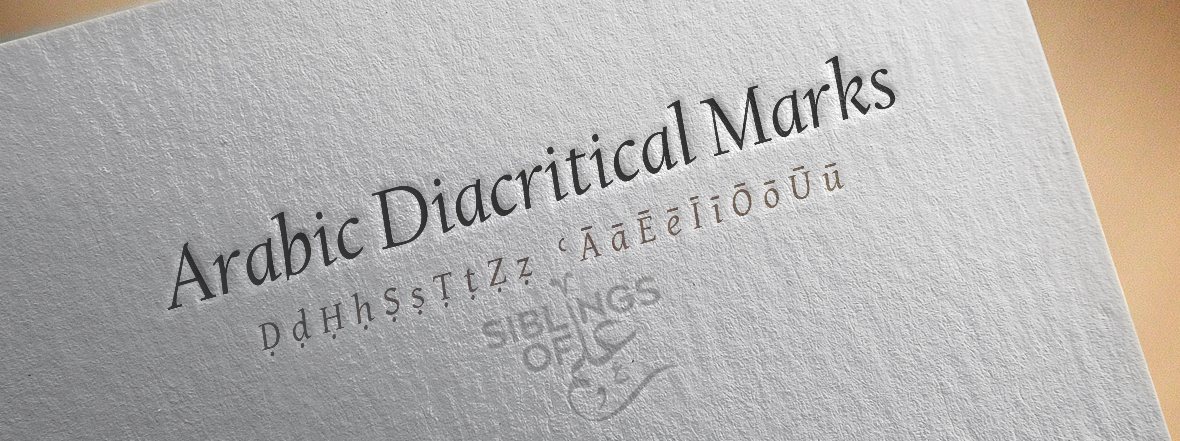Words are a string of sounds represented in some languages with symbols that together represent a concept, an object, or a person. In Arabic, three letters with distinct shapes and sounds come together to form the word “heart,” قلب, while at the same time reflecting the nature of the heart; it is easily swayed. Changing any letter in this little parcel will definitely alter the meaning. It is not just so with Arabic, but with English as well, saying “I love roses” is not the same as saying “I love noses.”
The little rhymes that we came up with as children by replacing the first letter of a word were indeed quite humorous. However, when we enter into the world of Quranic recitation, the substitution of letters is far from humorous. The beautiful word that represents our most vital organ can be changed to mean “dog,” only by a slight variation in the position of the tongue.
As the knowledge of Tajweed spreads, many Muslims are becoming more aware of the importance of pronouncing each letter as it should be pronounced. As we are trying, we are also realizing the difficulty of the endeavor. Our tongue naturally looks for a familiar sound similar to the one we hear, and automatically makes the substitution. Hence, using the sound of the letter “a” for the sound of ع.
How do we stop that automatic substitution? Although it can seem like a daunting task, I pray that the step by step approach outlined below will make the process seem much easier. I pray that students and teachers find it of benefit.
- Know the makhraj (point of origination of the letter). You can learn this through Tajweed books, or even through videos online.
- Make sure you can hear the sound correctly. Listen to recitations, and make sure you can pick out the sound that you are trying to learn. If you cannot do so, then you need to spend more time listening to a recording, or to your teacher, in order to make sure you can differentiate that sound from similar sounds.
- While trying to produce the sound, close your eyes, and focus on the position of your tongue, and notice exactly where it is. Or focus on the sensation caused in your throat when you say the letter correctly. (You will need a teacher to help you at this stage so you are sure that you are producing the correct sound).
- Remembering the sensation caused by the sound of the letter will help you to know whether you are saying it correctly or not.
- Another way is to record your recitation and to listen to it to determine whether you are producing the correct sound.
- Once you have produced the correct sound, (even once), you are ready to practice.
- One of the best ways to practice is to choose a name of Allah Taala that has that sound in it, and to say it after every prayer multiple times. Not only will you be making dhikr, but also, you will have a routine of practicing that sound. For example, if I am having trouble with the pronouncing the letter ح, then I could choose the name الرّحيم and say it multiple times after every prayer to practice the correct sound of the letter ح.
If you cannot hear the difference at all, it is often beneficial to think about the sounds that you do know in the language(s) that you speak. You are probably making an automatic substitution. Once you know which letter in your language you are using to substitute the Arabic letter, it may become easier to not make the automatic substitution.
There are many ways of correcting one’s pronunciation of the letters. These are the steps that have helped me and my students to correct our pronunciation :).






